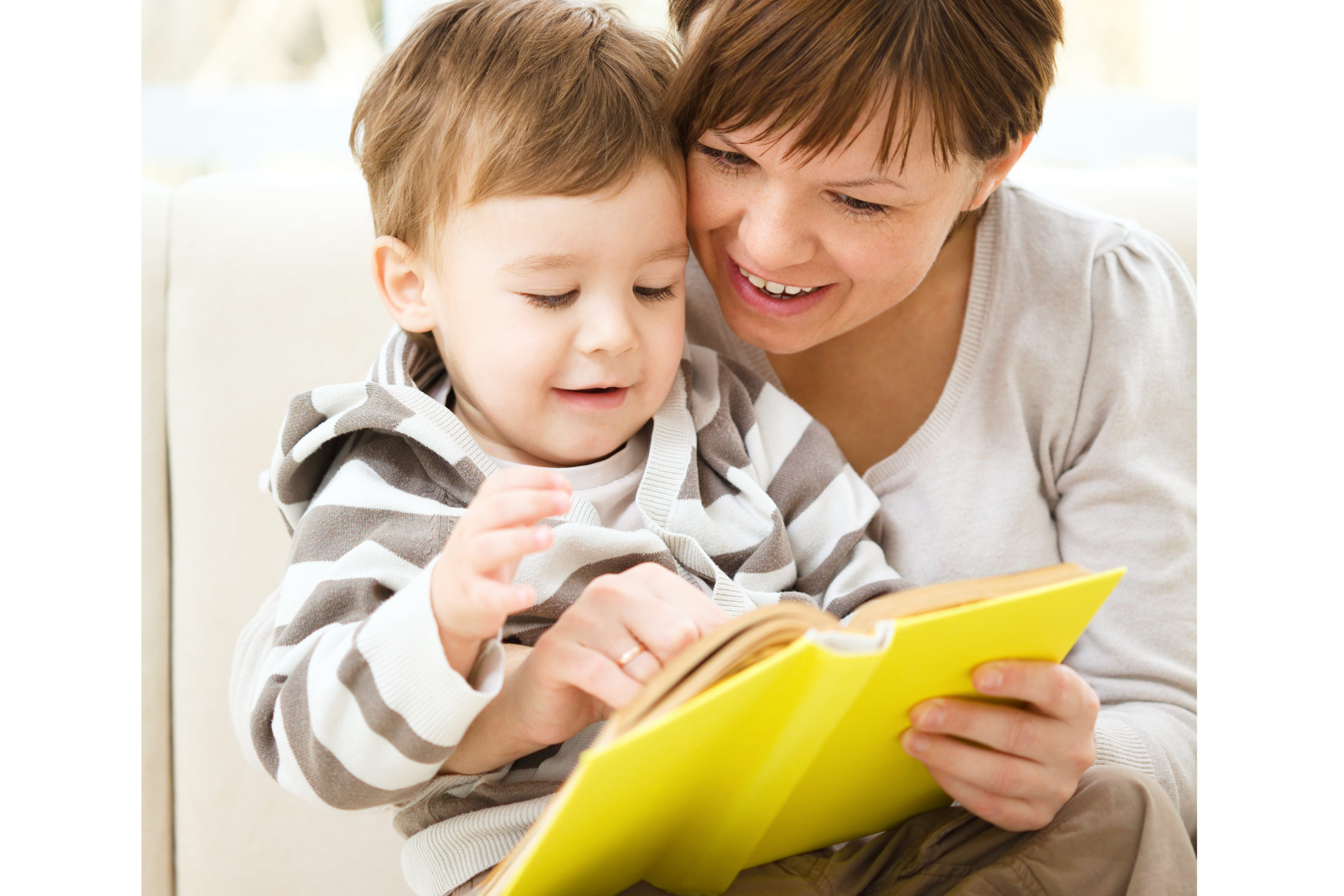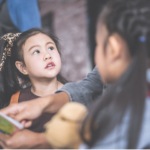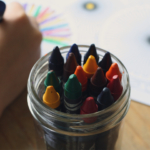
26 Sep Looking At Literacy: Developing Resilience
For very young children, their first understanding of how the world works and how people interact come from the stories they hear. Nan Williamson looks at how resilience can be developed through reading to children.
A songline is a map of Country and helps one feel like they belong.
 Throughout history, civilisations have passed on their cultural values and beliefs through stories. We are familiar with the Aboriginal dreaming stories that contain explanations for features of the natural world and instructions for young children on how the world works – how to find food and water, to move with the seasons, how to treat others, respect for elders. Stories convey the essential values and attitudes that make up the culture and must be handed to future generations in order to preserve the core of cultural values and make life manageable for the young. All civilisations have similar methods for passing on wisdom. Centuries ago, many of these practices were verbal, but many also involve priceless written artefacts that contain the essence of a culture.
Throughout history, civilisations have passed on their cultural values and beliefs through stories. We are familiar with the Aboriginal dreaming stories that contain explanations for features of the natural world and instructions for young children on how the world works – how to find food and water, to move with the seasons, how to treat others, respect for elders. Stories convey the essential values and attitudes that make up the culture and must be handed to future generations in order to preserve the core of cultural values and make life manageable for the young. All civilisations have similar methods for passing on wisdom. Centuries ago, many of these practices were verbal, but many also involve priceless written artefacts that contain the essence of a culture.
In our culture, our values and attitudes are found in our literature. For very young children, their first understanding about how the world works and how people interact come from the stories they hear. Simple stories for preschoolers contain the values we want them to absorb.  While traditional tales such as The Ugly Duckling and Little Red Riding Hood can often seem quite sad and brutal, they nevertheless give loud and clear messages to young children. Today’s books contain more modern and sensitive messages, which nonetheless deal with the people and places we value. In addition to broadening a child’s world by showing new places and ideas, they also show the inherent values we want our children to develop. The practice of treating others well, being fair and honest, looking after our environment and world, helping others, and the idea that in the end good will win over evil are so much accepted as basic truths in our culture that they seem almost invisible.
While traditional tales such as The Ugly Duckling and Little Red Riding Hood can often seem quite sad and brutal, they nevertheless give loud and clear messages to young children. Today’s books contain more modern and sensitive messages, which nonetheless deal with the people and places we value. In addition to broadening a child’s world by showing new places and ideas, they also show the inherent values we want our children to develop. The practice of treating others well, being fair and honest, looking after our environment and world, helping others, and the idea that in the end good will win over evil are so much accepted as basic truths in our culture that they seem almost invisible.
The importance of reading aloud to young children in helping them to develop emotional maturity cannot be overestimated. Books contain the stories of how we live our lives, the things that happen to people – both good and bad – and how they deal with them. By reading widely we come to learn how people act in certain situations, the things they say, the resources they develop and, in general, the acceptable and unacceptable standards of behaviour and customs.
There is a wealth of books published specifically to deal with issues confronting young children…
Author James Moloney has called this ‘emotional literacy’. He suggests that girls tend to ‘do emotional literacy’ better than boys because they read more fiction and, in particular, fiction that focuses on people’s feelings and relationships. (Consider the magazines that adults read: women’s magazines tend to contain articles about people and relationships while men’s magazines tend to be about things and activities – computers, fishing, cars etc.) Moloney also suggests that women tend to deal with relationship issues and to verbalise their problems better because of their more advanced emotional literacy – a result of reading widely.
Family break-ups, a death, accident or serious illness, are all matters which pose threats to our ordered lives…
All of this comes from books – not volumes relating to psychology or giving medical advice, but from simple storybooks – and it begins when children are very young. There is something very soothing and reassuring to children about the order and values contained in books. This is particularly true when the child or family is experiencing problems that might appear to suggest that the world does not contain order or values. Family break-ups, a death, accident or serious illness, are all matters which pose threats to our ordered lives and can suggest a world of chaos to a young child. At times like these, reading stories aloud to young children is vital to reaffirm the sense of an ordered and just world.
There is a wealth of books published specifically to deal with issues confronting young children, ranging from bedwetting and loneliness to divorce and death in the family. Moreover, there are many books that deal with difference and contain a variety of family patterns and varied values which can be used to reaffirm a specific situation – other families are like this too.
 Libraries and bookshops can advise on books suitable for very young children who are dealing with specific emotional problems. Slipping a pertinent story into the pile of books to read to your toddler can normalise the situation and reassure the child very quickly. And for other children who, happily, may not be dealing with such an issue, hearing about it encourages understanding and tolerance; emotional maturity.
Libraries and bookshops can advise on books suitable for very young children who are dealing with specific emotional problems. Slipping a pertinent story into the pile of books to read to your toddler can normalise the situation and reassure the child very quickly. And for other children who, happily, may not be dealing with such an issue, hearing about it encourages understanding and tolerance; emotional maturity.
Reading aloud daily to young children helps them to develop an understanding of other people, places and behaviour within the security of their own families. It is how we pass on our cultural values and understanding. Such understanding and experiences are particularly important in the event of personal and family difficulties but are essential for all children to learn about people, values and relationships.
Nan Williamson is a literacy consultant with special interests in children’s literacy. She was a primary teacher for more than 20 years.
Cunning Crow (Author-illustrator Gregg Dreise. Publisher Magabala Books) The fourth book in his series of morality tales inspired by wise sayings and the knowledge of Aboriginal Elders, out October 1
Cooee Mittigar (Author Jasmine Seymour & artist Leanne Mulgo Watson. Publisher Magabala Books), a beautiful children’s book that aims to teach primary school children about Aboriginal songlines, out November 1.




